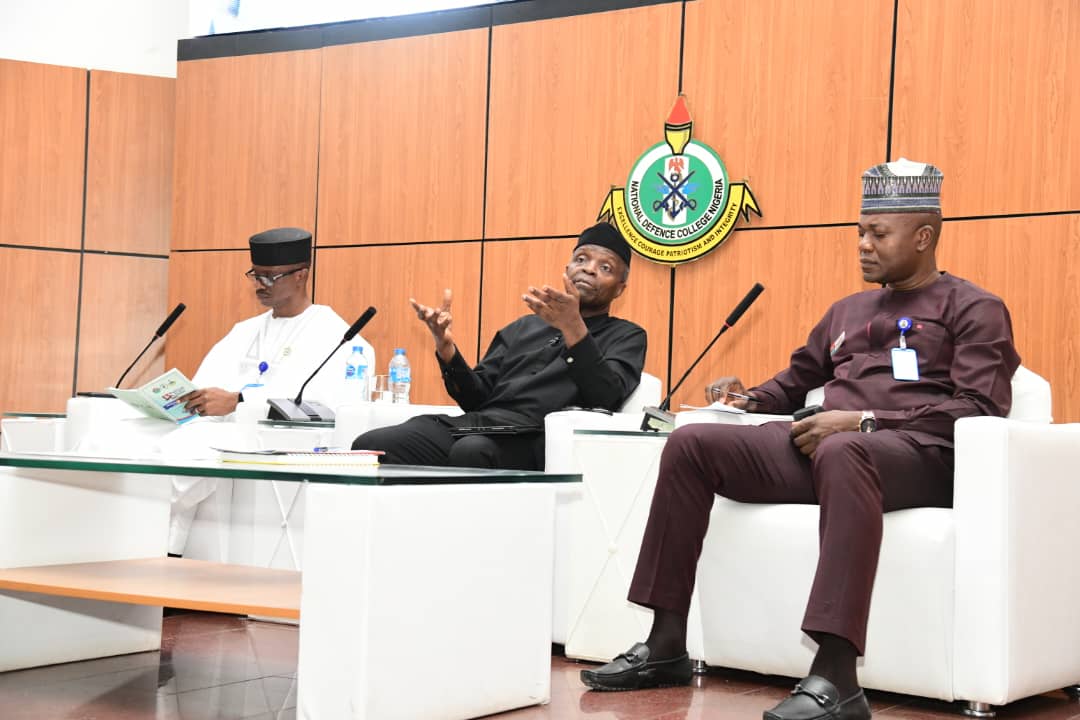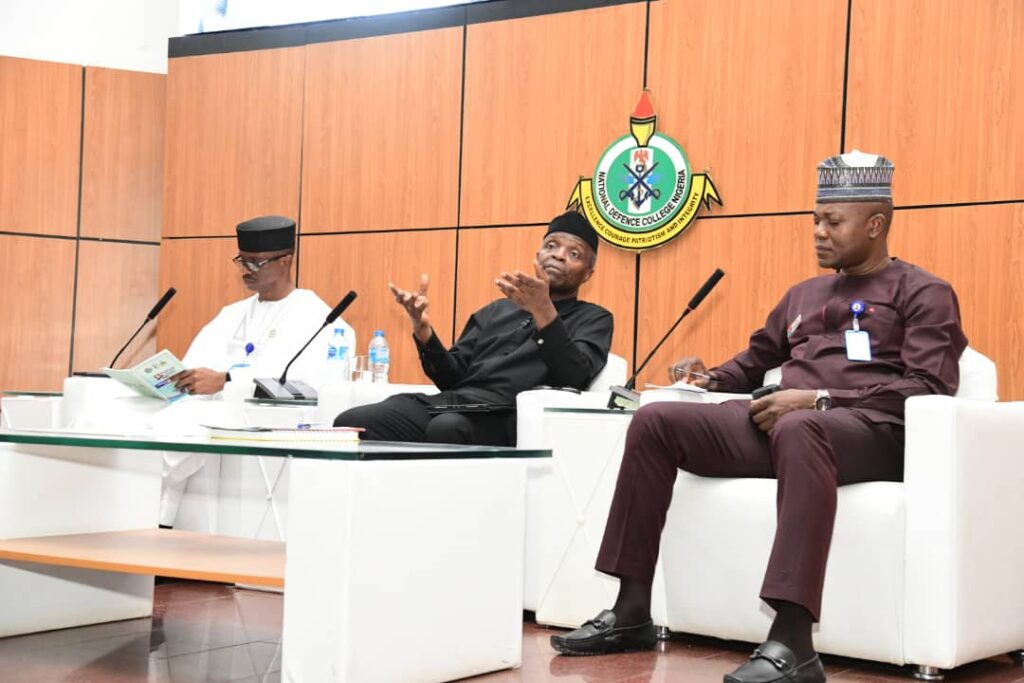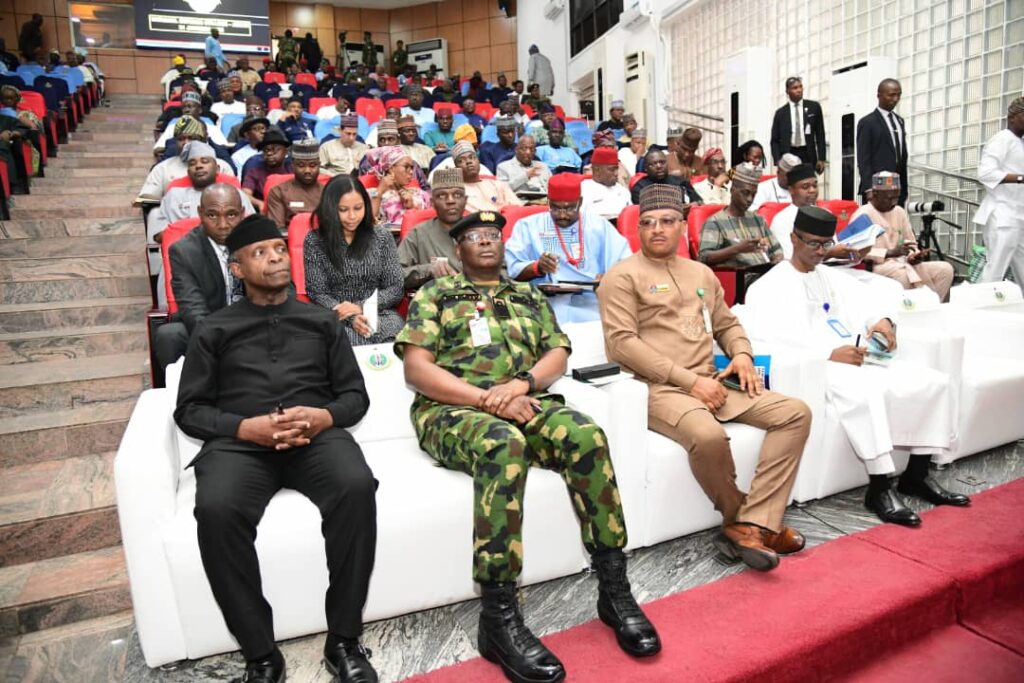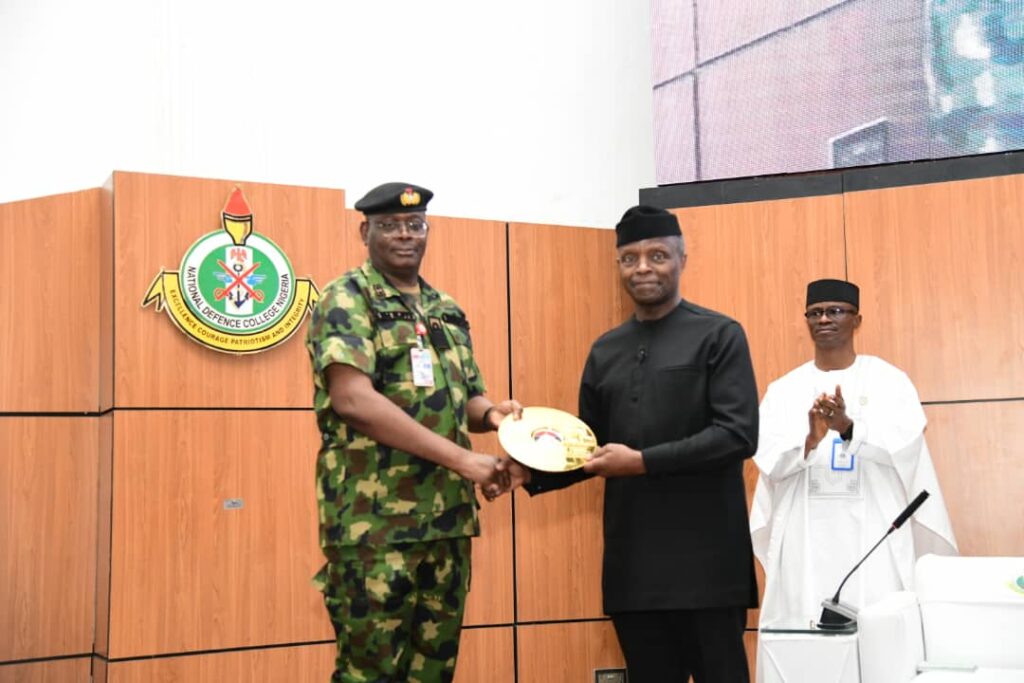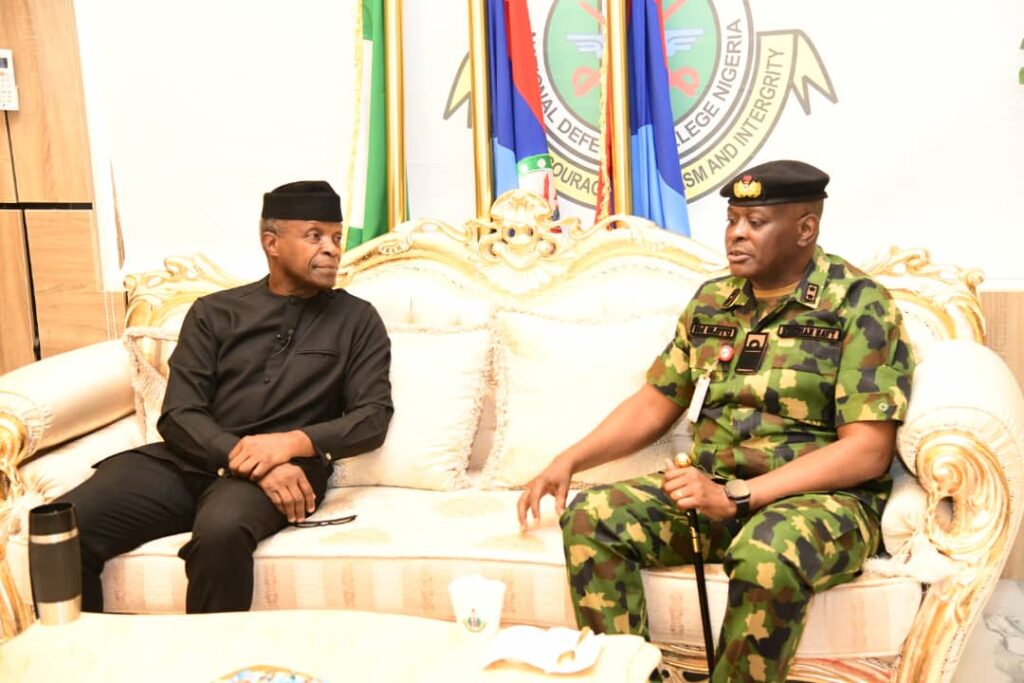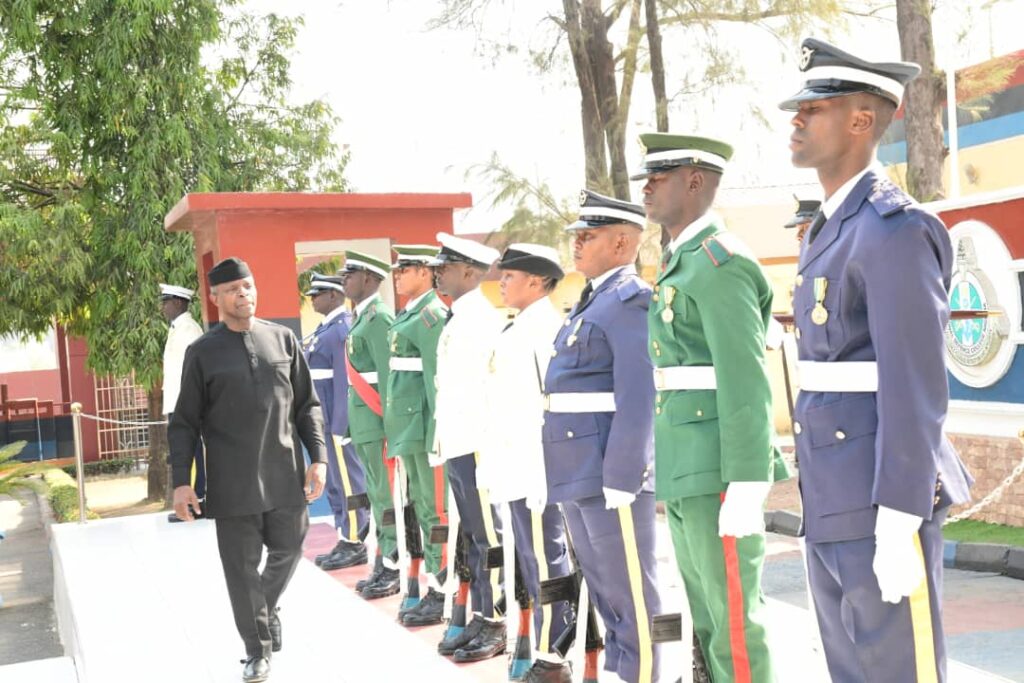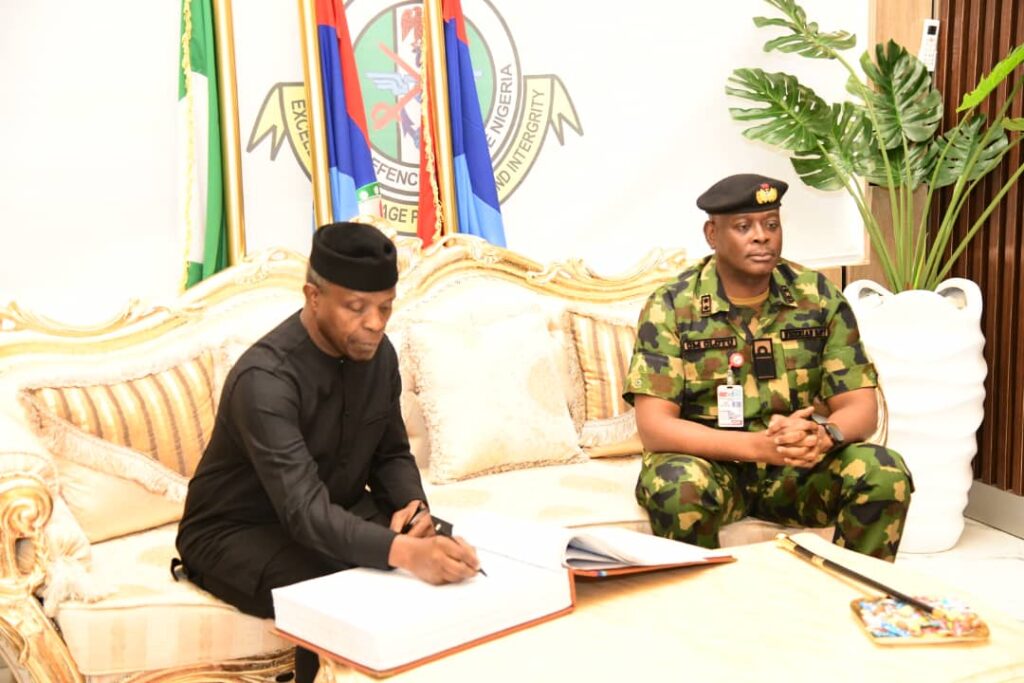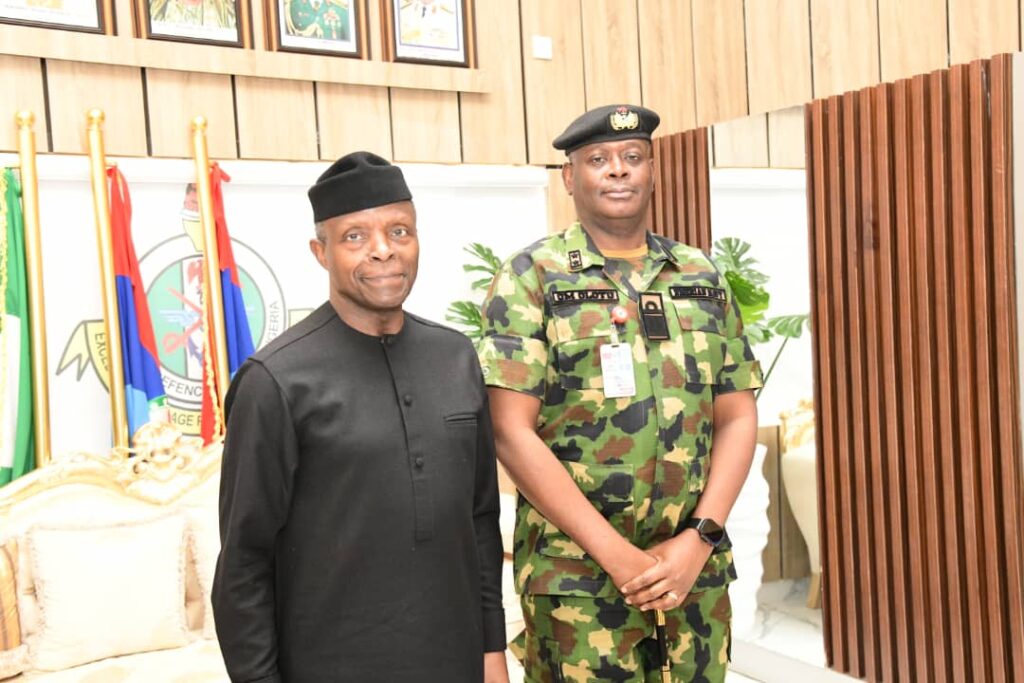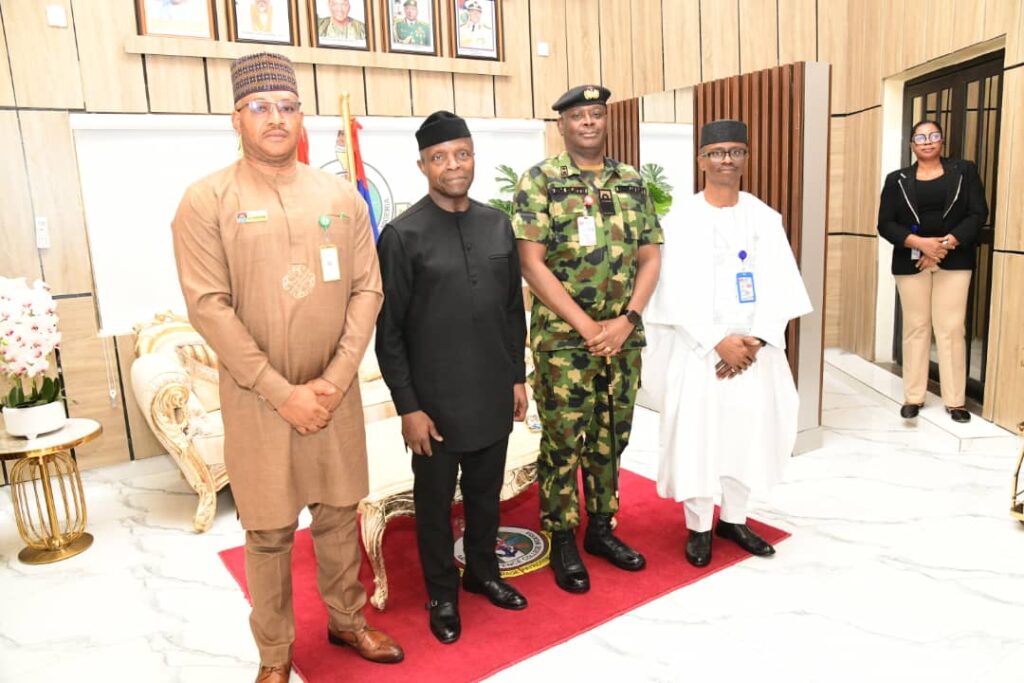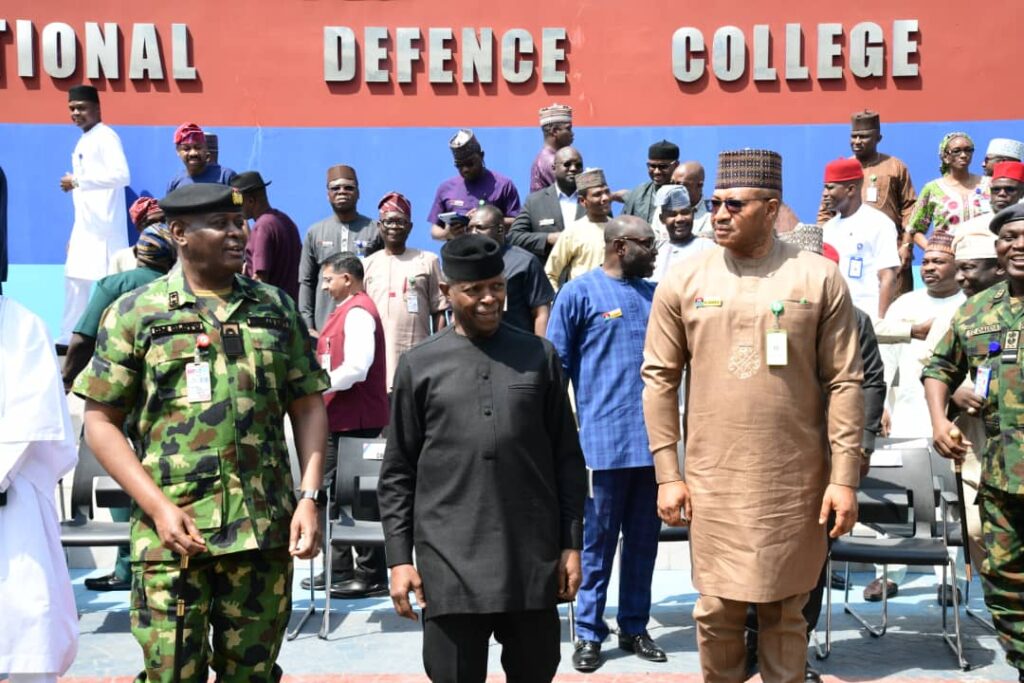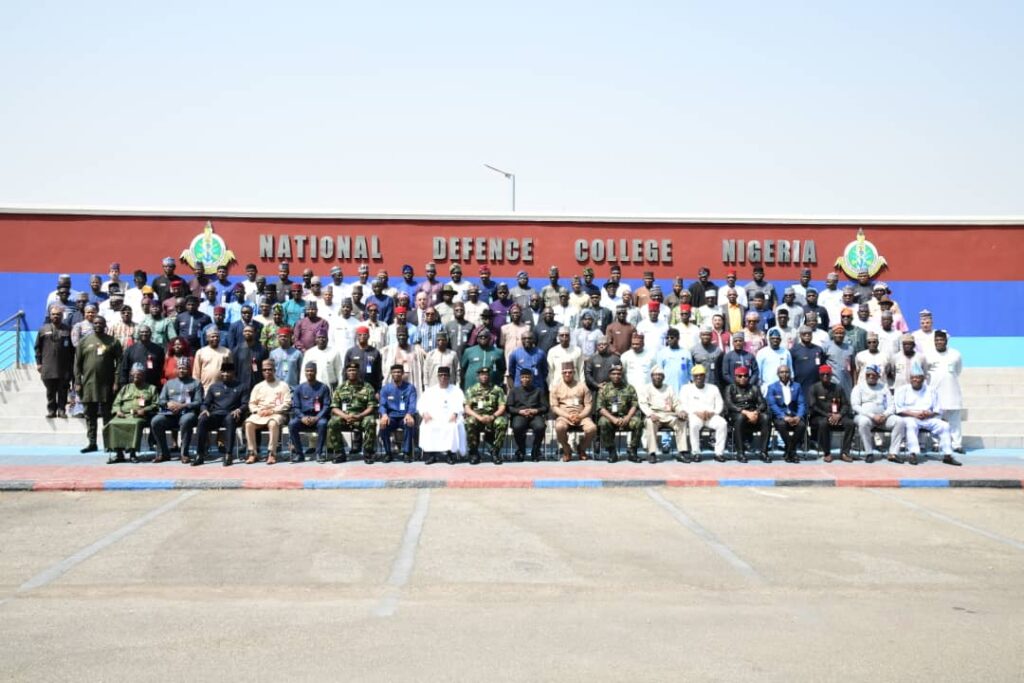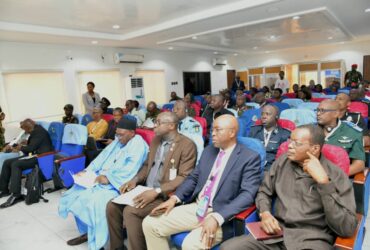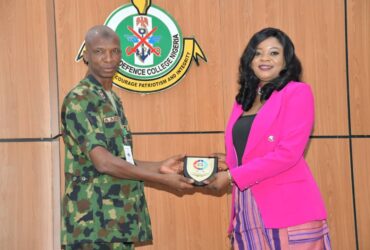Former Vice President Yemi Osinbajo Charges Strategic Leaders On Indigenous Development of Military Hardware
Former Vice President Yemi Osinbajo, SAN, has called for the development of Nigeria’s military-industrial complex, emphasising the urgent need for the country to manufacture its own weapons, including an indigenous version of the AK-47 rifle. Osinbajo called for this while delivering a lecture to Course 33 participants of the National Defence College in Abuja. The former VP commends President Bola Tinubu for his resolve recently and plans to establish military-industrial complex. Osinbajo, however, stressed that this plan must be approached with a clear mission and urgency.
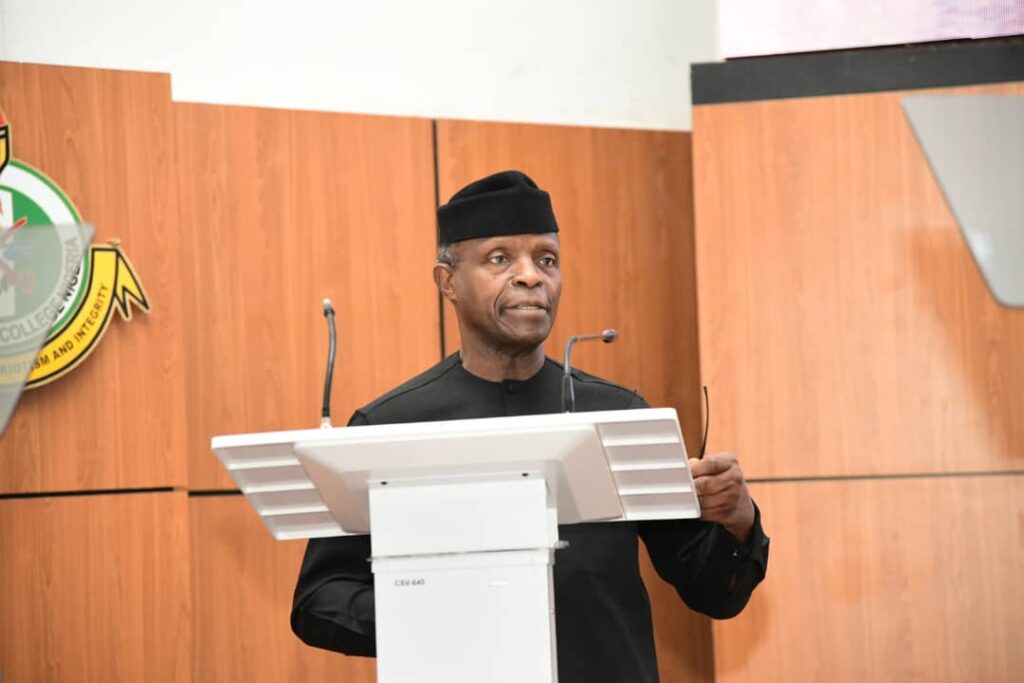
Speaking during the lecture titled “Strengthening Strategic Leadership and Governance in Nigeria; My perspective,” the former VP observed that “Empirical evidence strongly suggests that there is a definite correlation between poverty, low human capital development indices, and high instability and insecurity in a country. Indeed, today, the new paradigm for measuring security is human security. Human security goes beyond the absence of war and conflict; it includes the availability of the means to live, means to food, shelter, and clothing.”
He further emphasised the role of education and healthcare in national security, saying, “Because state and local governments are responsible for basic education and basic healthcare, the Federal Government must work with them to deliver a practical plan to deploy relevant basic and secondary education. We must be aware that we may not be able to achieve the scale, quality, and speed of educational ambitions. We must have to meaningfully engage the future, not using brick and mortar alone. Technology will, therefore, be a key.”
The former VP also noted the direct link of food security to national stability. “Food security is at the heart of the security of a nation. The food shortages caused by supply chain disruptions in the wake of the Russian invasion of Ukraine have demonstrated to us that you cannot afford to leave feeding of the populace to the whims of geopolitics, we can also grow our own food. This must be approached as a strategic imperative,” he said.
Osinbajo noted that with internal crises and insurgencies, the Nigerian Armed Forces has struggled to keep its personnel well-trained and well-equipped. He pointed out that the cost of arms and ammunitions has increased exponentially, while the politics surrounding arms procurement has often delayed the delivery of weapons, even after advance payments have been made. He emphasised that Nigeria must move swiftly to develop its defence industry through collaboration between the private sector and the government. “The government’s role is crucial. First, the government must initially fund research and development and enable access to concessional capital. The government is the major consumer of weapons, so the government must intentionally decide to procure weapons locally and issue long-term supply contracts to local manufacturers of military hardware,” he explained.
He referenced the existing legal and policy framework that supports local arms production, including the National Defence Policy of 2017 and two key Acts—one establishing the Defence Research and Development Bureau (DRDB) and another amending the Defence Industries Corporation of Nigeria (DICON). “DICON has had a chequered history, but it has remained resilient. Although its manufacturing infrastructure needs to be revamped, it has some capacity to produce. It has set for itself, in the defence policy, a baseline of producing 50,000 bullet vests and ballistic helmets per year. It has also set a baseline for the production of 150 Mine-Resistant Ambush Protected vehicles (MRAPs), Armoured Personnel Carriers (APCs), medium tanks, and Unmanned Aerial Vehicles (UAVs),” he elaborated.
The former VP insisted that Nigeria’s ambitions for local arms production must be far greater – first in the range and volume of ordnance that should be produced, including guns, cannons, missile launchers, and other armaments; and also, on the volume and range of ammunition – bullets, shells, rockets, and bombs; explosives—grenades, landmines, and other explosive devices; and military equipment.
“We should produce all our small arms locally. There is no reason why we should not have our own version of an assault rifle like the AK-47. This is possibly the most widely used weapon by our troops and police. Already, we have seen many skilful fabrications of similar assault rifles. This capacity would come from fully engaging private sector players and private capital. Government budgeting for arms production simply cannot provide the needs of an army adequate for a country of Nigeria’s size and military importance.” Osinbajo observed that several private Nigerian companies are already engaged in arms and equipment manufacturing, with some even exporting their products. “Already, there are several private arms manufacturers and equipment manufacturers producing MRAPs and APCs, some even exporting. These include Proforce, Imperium, Epail, and Innoson.” He urged the Ministry of Trade and Industry, the Ministry of Defence, and the Office of the National Security Adviser to adopt an all-government approach in facilitating these joint ventures and technology transfer processes. Beyond military hardware production, Osinbajo stressed that Nigeria must also take a leadership role in restoring confidence in democratic governance across West Africa.
In his remarks, the Commandant, National Defence College, Rear Admiral Olumuyiwa Olotu describes the former VP Osinbajo”s lecture as a great masterpiece where all important areas and factors of strategic leadership were discussed by the erudite scholar ranging from military, economy, politics, business and society. He expressed appreciation to the guest lecturer for sharing his rich experiences with the participants on governance and strategic leadership. The Commandant called on the participants to utilise this knowledge in their future responsibilities and apply them in their studies and further research.



